News
-
 Archaeology
ArchaeologySound-reflecting shelters inspired ancient rock artists
Ancient Europeans sought rock art sites where sounds carried.
By Bruce Bower -
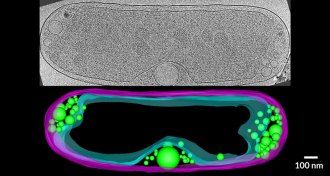 Life
LifeScientists spy on the secret inner life of bacteria
New images reveal the inner workings of bacteria.
-
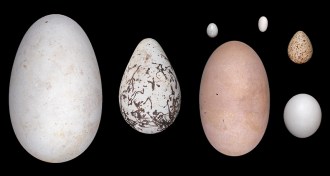 Life
LifeFlight demands may have steered the evolution of bird egg shape
An analysis of nearly 50,000 bird eggs finds a link between a species’ egg shape and flight ability.
-
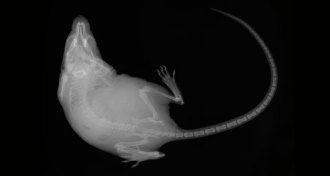 Health & Medicine
Health & MedicineBones make hormones that communicate with the brain and other organs
Bones send out hormone signals that chat with other parts of the body, studies in mice show. What influence these hormones have in people, though, remain a mystery.
-
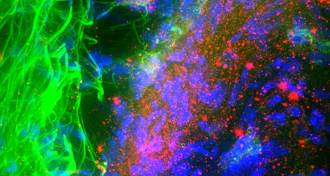 Health & Medicine
Health & MedicineProtein in Parkinson’s provokes the immune system
The immune system recognizes parts of a protein linked to Parkinson’s disease as foreign, triggering an autoimmune response.
-
 Health & Medicine
Health & MedicineA baby’s DNA may kick off mom’s preeclampsia
A large genetic analysis points to a protein made by the fetus that may trigger preeclampsia in the mom.
-
 Environment
EnvironmentNew material could filter water contaminants that others miss
A new polymer offers a better way to pull fluorine-containing pollutants out of drinking water.
-
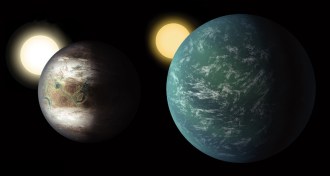 Astronomy
AstronomyKepler shows small exoplanets are either super-Earths or mini-Neptunes
The final catalog from the Kepler space telescope splits Earthlike exoplanets into two groups and pinpoints 10 new rocky planets in the habitable zone.
-
 Genetics
GeneticsDNA reveals how cats achieved world domination
Analysis of 9,000 years of cat remains suggests two waves of migration
-
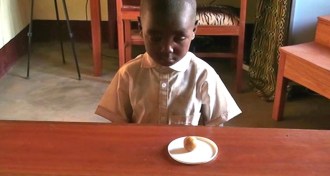 Psychology
PsychologyAfrican farmers’ kids conquer the marshmallow test
Nso farmers in Cameroon groom kids for self-control that Western peers often lack.
By Bruce Bower -
 Astronomy
AstronomyEclipse watchers catch part of the sun’s surface fleeing to space
A serendipitous eruption during a solar eclipse showed relatively cool blobs of plasma, wrapped in a million-degree flame, streaming from the sun.
-
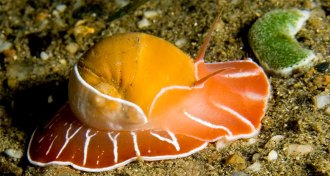 Paleontology
PaleontologyAncient attack marks show ocean predators got scarier
Killer snails and other ocean predators that drill through shells have grown bigger over evolutionary time.
By Susan Milius